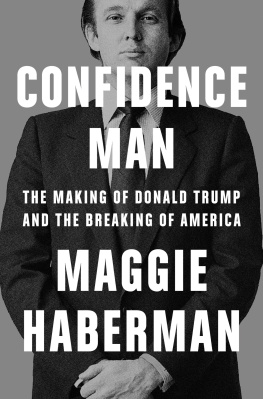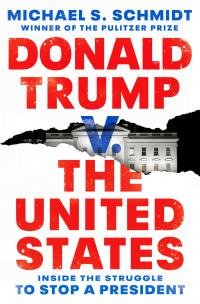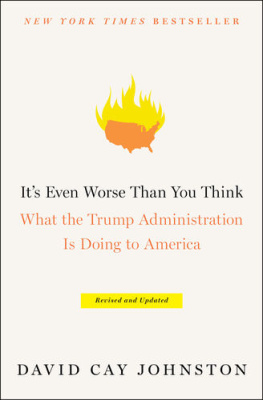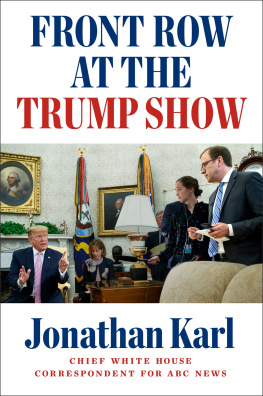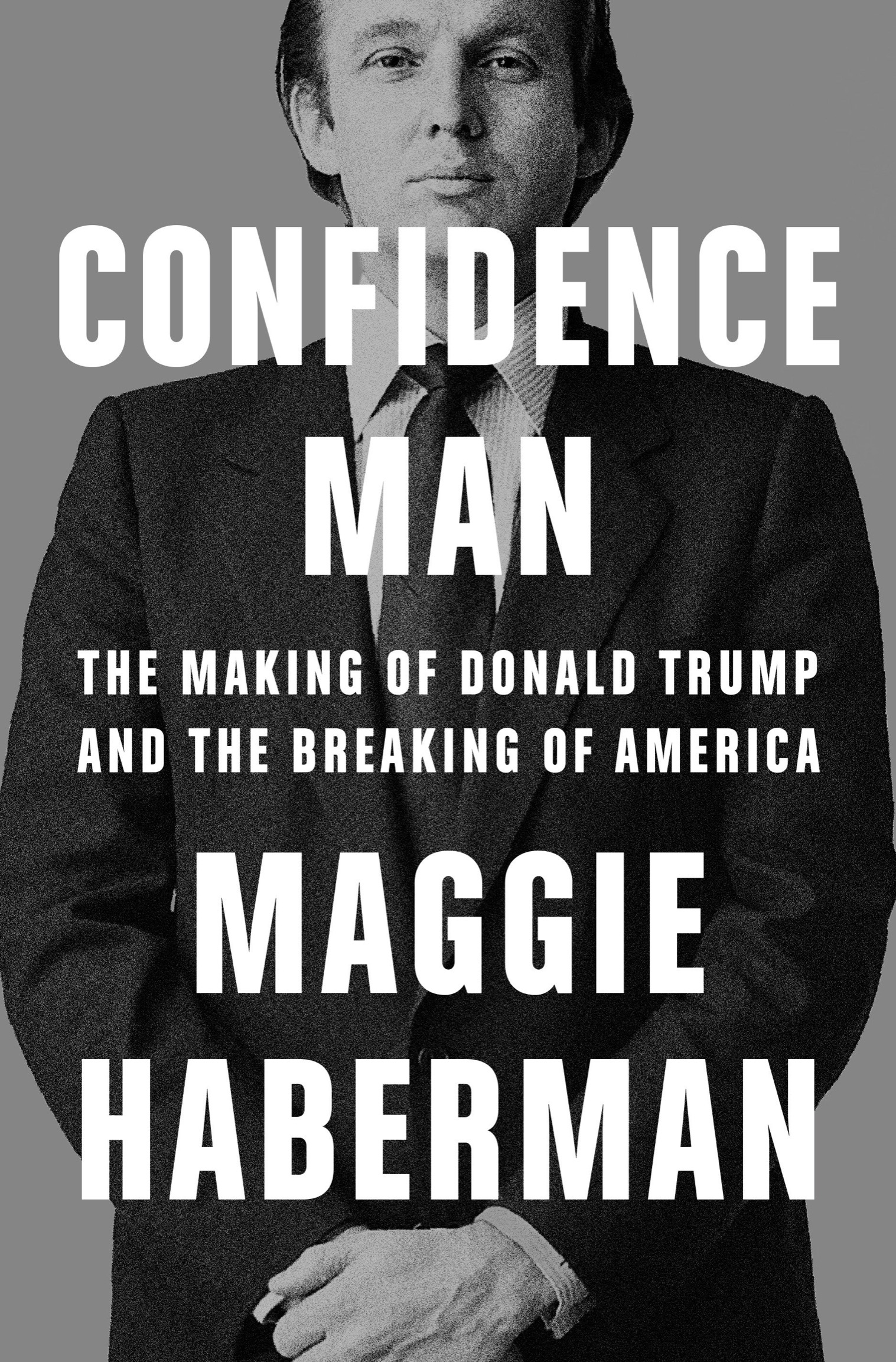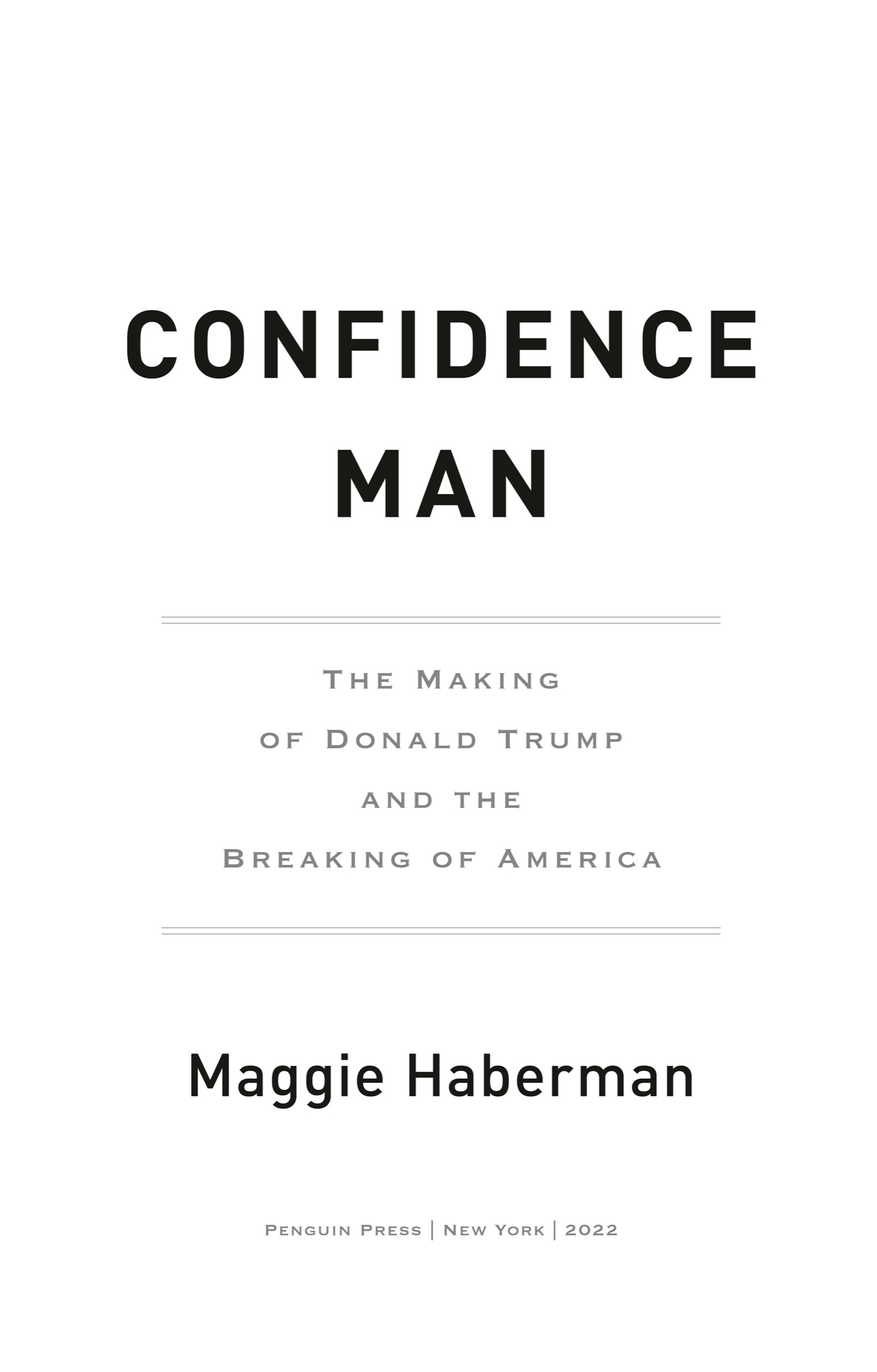Penguin Random House supports copyright. Copyright fuels creativity, encourages diverse voices, promotes free speech, and creates a vibrant culture. Thank you for buying an authorized edition of this book and for complying with copyright laws by not reproducing, scanning, or distributing any part of it in any form without permission. You are supporting writers and allowing Penguin Random House to continue to publish books for every reader.
Prologue
What do you need me to say?
It was May 5, 2016, two days after the Republican primary in Indiana. I sat in the back of a yellow taxicab as it rolled down Fifth Avenue, my computer open on my lap and a phone held to my ear.
The likely Republican nominee for president was on the other end of the call. I had reached out to his staff for comment about a fresh round of support he had received from David Duke, a former Ku Klux Klan grand wizard and onetime Louisiana politician, who had recently alleged that opposition to the Trump campaign came from Jewish extremists and Jewish supremacists. The Anti-Defamation League, as it did at other points during that campaign, called on the candidate to make unequivocally clear that he rejected Dukes statement.
Donald Trump greeted me and then cut quickly to his point.
Im here with my two Jewish lawyers, he said, appearing to refer to David Friedman and Jason Greenblatt, both of whom handled matters for his company, the Trump Organization.
I have a statement. Are you ready? he asked. I waited, my fingers hovering over the keyboard. Antisemitism has no place in our society, which should be united, not divided, he said, as I typed his words. Then a pause. A pause that went on a beat too long.
Thats it? I asked.
Another pause. Then Trump asked, What do you need me to say?
Trump was notorious for seeking cues that would help him please his audience, but in this context, his uncertainty threw me. Knowing what to say to show you wanted to separate yourself from the nations most famous white supremacist should not be hard. I reiterated what I had told his campaign aides, that I was seeking a response or reaction to Dukes antisemitic remarks about Jewish extremists; Trump seemed to realize why his initial statement was deficient, and added that he totally disavows what Duke said. A few seconds later, we hung up.
What do you need me to say?
In some ways, it was the question that informed all Trump had done as a businessman, where success had made him a recurring character in New York Citys tabloid newspapers. Young Donald Trump had been athletic as a teenager, and then aspired to a career in Hollywood. He ultimately fulfilled his fathers desire for a successor in the family business: real estate. But what the son really always wanted was to be a star.
So that question guided Trump to cast himself as he preferred to be seena take-charge billionaire in a leather-backed seat on the reality television show The Apprentice. He was usually selling, saying whatever he had to in order to survive life in ten-minute increments. He was also guided by a belief in repetition; over and over he would convey to employees and friends a version of the same idea: if you say something often enough, it becomes true. Together these instincts helped him to evade public and private danger over the course of nearly fifty years, and then became the foundation for his approach to politics, as a candidate and then a president and a former president.
Though some of his confidants held out hope that the weight of the presidency would change Trump, that was never a likely outcome. Over the years, those who got closest to him and chose to stay there often suggested they had been sucked in by a version best described as the Good Trump. The Good Trump was capable of generosity and kindness, throwing birthday parties for friends and checking on them repeatedly when they fell ill, calling the daughter of a political ally who was suffering from breast cancer for a surprise chat from the White House. The Good Trump could be funny and fun to be around, solicitous and engaged, able to at least appear interested in the people in his company. The Good Trump could heed advice from aides hoping to curb his self-destructive impulses and could seem vulnerable. That version of Trump won the loyalty of many people over decades. Being close to Trump was like being friends with a hurricane, one longtime friend told me. It was very exciting, but you kind of dont know which way the wind was blowing.
In the White House, those who met Trump for the first time were often disarmed, seeing someone not at all like the angry voice of his Twitter feed or the fuming boss portrayed in innumerable news accounts. In some respects, he benefited from that media coverage and social media persona; he was often calmer in person in initial interactions, leading people to question the veracity of what they had read. (The all-capitalized tweets that projected anger were sometimes sent while he was laughing about the same topic.) He is charismatic and can be charming, and in those initial encounters, he would ask people questions about themselves, zeroing in on them, giving them the sense that they were the only person in the room.
But even those who rationalized staying close to him acknowledged that a Bad Trump always revealed himself. That was the man who made racist comments and then insisted people had misunderstood him, giving his allies cover by which to defend him. He was interested primarily in money, dominance, power, bullying, and himself. He treated rules and regulations as unnecessary obstacles rather than constraints on his behavior. He lost his temper suddenly, and abusively, directing his ire at one aide in a roomful of others, before moving on from a burst of anger that instilled fear in everyone that they could be its next target. Occasionally, he would recognize that he had gone too far, but instead of apologizing, he would be effusive toward his target the next time they saw each other. He sought an endless stream of praise, prompting a range of aides to offer it in his presence or on television. He created an environment perpetually beset by rivalries, where those in his circle became fixated on tearing down whoever had begun to win his favor. He disregarded the advice of long-serving government employees and business professionals and his own lawyers. He encouraged people to take risky actions in his name, and demanded they prove themselves to him over and over; many were so eager for his approval that they obliged. His thirst for fame seemed to grow each time he tasted more of it, and his anger at being wounded, which was often met only with an outsize reaction against the person he blamed for the injury, was always there. Trump almost always foreclosed few options until the last possible minute and modulated his behavior only when he had to; more often than not, he waited out people and institutions who posed resistance, ultimately bending them to his will through inertia. That version of Trump was the one who was most often seen in the eight weeks leading to the violent aftermath of his 2020 loss on January 6, 2021. After he left office, some of his closest aides and supporters privately described themselves and his political movement as having been held hostage to his refusal to cede the stage; independently, those people said the only thing that would change the situation was Trumps passing.

